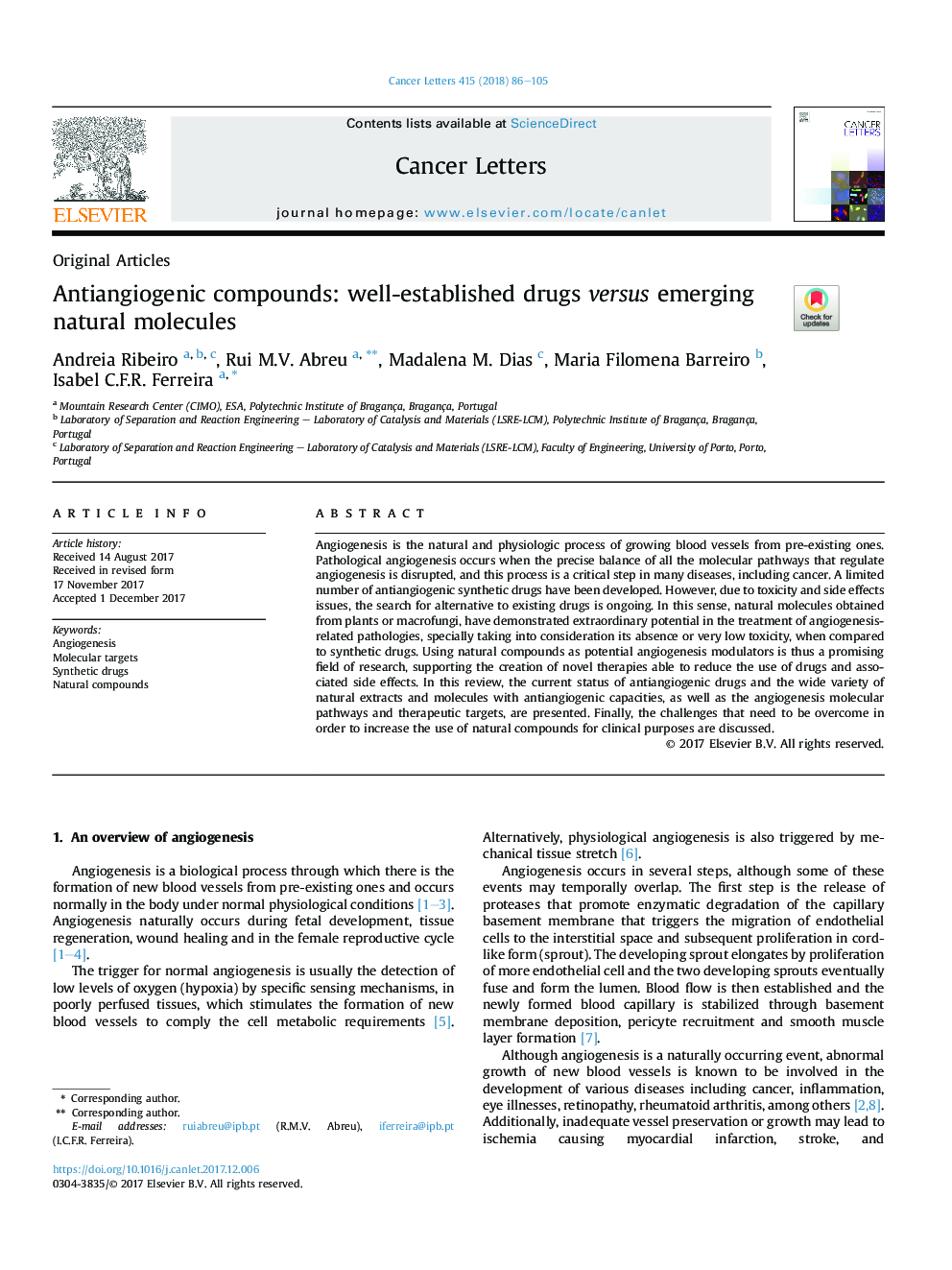| Article ID | Journal | Published Year | Pages | File Type |
|---|---|---|---|---|
| 8434944 | Cancer Letters | 2018 | 20 Pages |
Abstract
Angiogenesis is the natural and physiologic process of growing blood vessels from pre-existing ones. Pathological angiogenesis occurs when the precise balance of all the molecular pathways that regulate angiogenesis is disrupted, and this process is a critical step in many diseases, including cancer. A limited number of antiangiogenic synthetic drugs have been developed. However, due to toxicity and side effects issues, the search for alternative to existing drugs is ongoing. In this sense, natural molecules obtained from plants or macrofungi, have demonstrated extraordinary potential in the treatment of angiogenesis-related pathologies, specially taking into consideration its absence or very low toxicity, when compared to synthetic drugs. Using natural compounds as potential angiogenesis modulators is thus a promising field of research, supporting the creation of novel therapies able to reduce the use of drugs and associated side effects. In this review, the current status of antiangiogenic drugs and the wide variety of natural extracts and molecules with antiangiogenic capacities, as well as the angiogenesis molecular pathways and therapeutic targets, are presented. Finally, the challenges that need to be overcome in order to increase the use of natural compounds for clinical purposes are discussed.
Related Topics
Life Sciences
Biochemistry, Genetics and Molecular Biology
Cancer Research
Authors
Andreia Ribeiro, Rui M.V. Abreu, Madalena M. Dias, Maria Filomena Barreiro, Isabel C.F.R. Ferreira,
